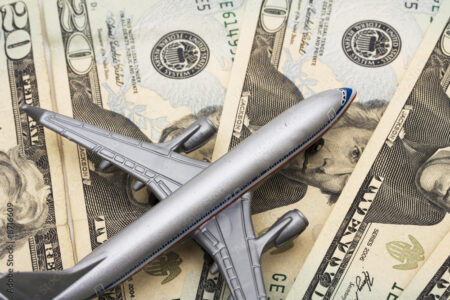Luxaviation Group comprisess top-of-the line aviation brands, including Luxaviation, Starspeed, ExecuJet and Paragon. It operates across five continents, with more than 1000 employees delivering service in the areas of aircraft management for private and commercial aircraft, private air charter services, and the management and operation of VIP passenger terminals as well as managing a FBO network of over 140 facilities worldwide. Yet, despite its global footprint, Luxaviation is laser-focused on understanding and mitigating its environmental impact.
“Luxaviation takes a holistic approach to understanding its environmental footprint,” says Nicola-Jane Sellers, Luxaviation Group’s head of sustainability. “We are committed to conducting an annual group-wide greenhouse gas (GHG) emissions assessment. This enables us to identify areas for improvement, focusing our GHG emissions reduction strategy on three fundamental pillars, which are to improve fuel efficiency, use sustainable fuel, and offset remaining GHG emissions.”
Unlocking a sustainable future
According to Sellers the company aligns with the Business Aviation Commitment on Climate Change (BACCC), encompassing more efficient operations and infrastructure, global market-based measures, and technological advancements. “These mechanisms illustrate aviation’s non-linear pathway to net zero as well as the multifaceted approach Luxaviation and the broader industry must adopt to unlock a sustainable future,” she says.
Sellers says that sustainability is embedded as a core principle at Luxaviation: “It shapes our entire business strategy. This drives operational efficiency by integrating environmental, social, and economic considerations through shared responsibility.
“By creating long-term value, we can positively impact our stakeholders, including our one shared planet – both now and in the future.”
The plan
Luxaviation’s sustainability strategy has remained dynamic, recognizing the need for agility in a rapidly evolving landscape. “As consumer, investor, and regulatory pressures continue to rise our strategy will adapt, guiding the company’s direction over the next decade. By shifting stakeholder decision-making from reflective to more instinctual choices, we’re implementing interventions that will accelerate this process. However, we recognize that sustainability is a journey of continuous improvement, and we will continue strive for ever-higher standards,” she says.
Sellers believes embedding sustainability into corporate culture is crucial for long-term success. “It fosters both individual and collective responsibility,” she says. “Sustainability is not viewed as an isolated objective but is ingrained in our organization. Our governance structure combines top-down and bottom-up approaches to ensure alignment between strategic leadership and local implementation, encouraging change at all levels.”
The company is committed to fully electrifying its ground handling equipment across ExecuJet FBOs by 2030, prioritising green electricity contracts, improving operational efficiency, and aiming to eliminate single-use plastic bottles and cans from its FBO operations by 2026.
“In the air, we focus on innovation to reduce flight emissions, utilizing technologies such as Foreflight for route optimization and electronic tech logs (ETLs) to enhance efficiency,” says Sellers. “The Luxaviation app also plays a key role in redefining luxury aviation by promoting sustainable aviation fuel (SAF), empty legs,
and providing carbon emissions calculations, and accompanying carbon offsetting options.
“Most recently, in partnership with our Business Aviation Training Solutions (BATS) division, we launched a sustainable aviation training module. This initiative reflects the interconnectedness of our operations and underscores our commitment to education as a driver of environmental responsibility in business aviation.”
Sellers believes measuring, tracking, and reporting sustainability progress is essential for demonstrating a commitment to transparency and continuous improvement.
“Our environmental targets are outlined in our global sustainability strategy, which is publicly available on our website. We regularly measure and track progress against these targets, publishing results in our annual sustainability report. Since 2021, Luxaviation remains the operator committed to publishing such a report, which includes a GHG assessment to provide stakeholders with valuable insights into our impact and progress,” she says.
When Sellers reflects on the aviation industry’s environmental challenges, her words carry both urgency and pragmatism.
“Motivations for acting on climate change often centre on how businesses impact the climate and contribute to global warming. However, when we shift this narrative to consider how climate change impacts businesses, the imperative to act is catalysed.
“Rising global temperatures significantly threaten the global ecosystem and pose both direct and indirect risks to the aviation sector. These risks can include social political disruptions, financial and economic uncertainty, heightened safety risks due to more severe and frequent storms, and direct impacts on infrastructure. To mitigate these risks, ensuring business resilience and longevity, all companies should either have or be in the process of developing a net zero transition strategy.
“Whether through a human-led transition guided by policy and innovation or one dictated by nature itself, a net zero future is inevitable,” she says.
Taking action
“Having dedicated my career to business aviation, my understanding of aviation’s environmental impact has deepened, along with my awareness of the systemic challenges posed by climate change. Both social and physical experiences have shaped my values, leading me to help transform an industry that can not only be sustained but thrive, through a transition that will reshape the legacy of our skies,” says Sellers.
“Taking action on climate change has become a global imperative to meet the needs of the present without compromising the ability of future generations to meet their own needs – it’s a matter of survival – socially, environmentally, and economically, now and in the future.”
Sellers says that business aviation faces significant obstacles in achieving net zero carbon emissions. “This includes technological, infrastructure, and cost challenges. While SAF is identified as a key enabler of the transition, its adoption is hindered by production limitations, feedstock availability, and supply chain complexities.
“Psychological barriers also play a role, with a lack of trust, social acceptance, and willingness hindering progress to adopt more sustainable alternatives. Despite these challenges, business aviation can lead the way by testing new technologies, driving innovation, and contributing to the global industry.”
Simple steps
According to Sellers, Luxaviation follows a simple three-step approach when it comes to sustainability: “First, we focus on avoiding GHG emissions by improving efficiency; second, we work to reduce emissions through interventions like SAF; and third, we aim to offset any remaining emissions that can’t otherwise be avoided or reduced.
“While each step presents its own challenges, success lies in making more mindful consumption choices. Whether it’s electricity, water and energy consumption, paper waste, or single-use plastic bottles and cans, the focus is on adopting renewable and reusable alternatives, promoting circularity. By fostering conscious decision-making at both individual and collective levels, these actions will scale over time, becoming ingrained as new social norms,” she says.
When asked if she believes if it is possible to grow an aviation business in an environmentally responsible way, Sellers says, “In theory, yes. However, this requires businesses to decouple traditional growth for example, financial growth from its environmental impact.
“Achieving this means embedding sustainability at the core of a company’s purpose, influencing both strategic decisions and the actions taken toward more responsible operations. It demands long-term thinking over short-term gains, leveraging innovation, efficiency, and behaviour change to drive progress.
“Ultimately, this challenges traditional business models and necessitates a paradigm shift that aligns with a rapidly changing world and modernity.”
Advice
Sellers says other business aviation companies at the very start of their net zero journey should start by thoroughly understanding their business and stakeholders, identifying both positive and negative impacts to set their priorities. “Begin with a clear vision and strategy that aligns with your company’s mission, values, and industry goals. Sometimes, this may involve updating company values to ensure alignment.
“Engage stakeholders early to build trust and transparency. Clearly explain the reasons behind your actions and ensure everyone understands their role in the process. Using practical examples to demonstrate how responsible practices apply to their work is an effective method,” she says.
“Remember, change is a journey that requires ongoing effort from all stakeholders, aligned with corporate strategies, to achieve meaningful outcomes. Be sure to maintain the momentum, as each day offers an opportunity to improve upon the last.”





